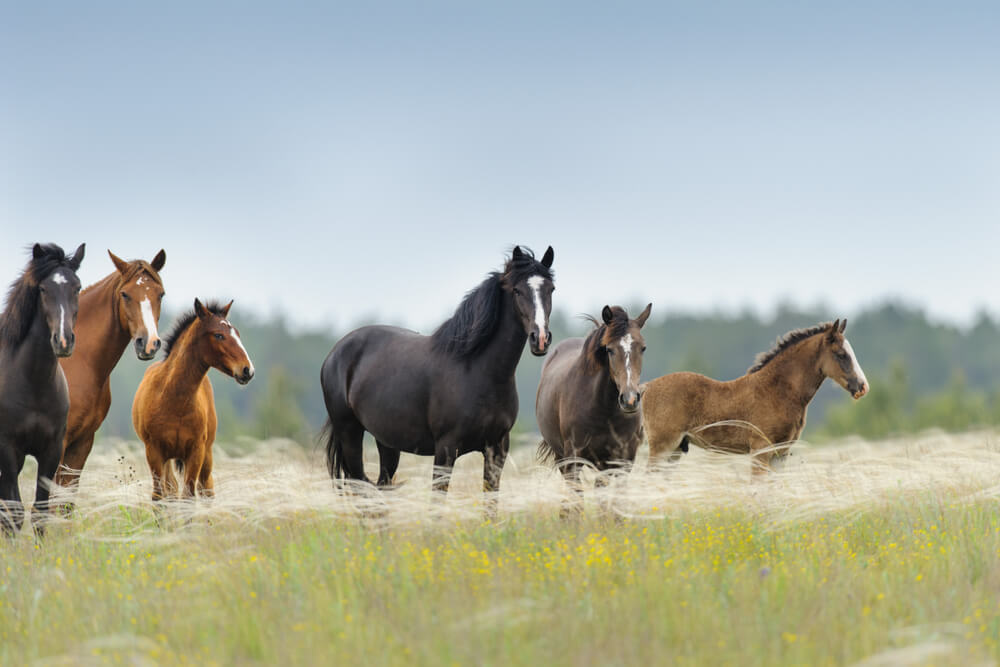
3 tips to prevent colic in your horse.
Horses are ‘monogastric herbivores’ or, in layman's terms, vegans with one stomach. Horses are well designed for their original environment where they traveled for many kilometres and grazing up to 16 hours per day. They are not so well designed for the domestic environment with limited pasture diversity and one or two feeds per day with high grain content.
Colic is a common and potentially life-threatening condition causing abdominal pain in horses. While Colic can have various causes, including dietary factors, management practices, and medical conditions, there are measures horse owners can take to reduce the risk. In this blog, we will discuss three top tips to help prevent colic in horses and promote their overall well-being.
Maintain a Consistent Feeding Routine:
- One of the crucial factors in preventing colic is establishing and maintaining a consistent feeding routine for your horse. Horses have sensitive digestive systems that thrive on regularity. Abrupt changes in feeding schedules or diets can disrupt their digestive process and increase the likelihood of colic.
Here's some key points to consider:
- Consistent Meal Times: Feed your horse at the same times each day to establish a routine. Horses are creatures of habit, and maintaining a regular schedule helps them maintain a healthy digestive system.
- Gradual Diet Changes: If you need to make any changes to your horse's diet, such as introducing new feeds or adjusting portions, do so gradually over a period of 7-14 days. This allows the microbiome in their digestive system to adapt and reduces the risk of colic associated with sudden dietary changes.
- High-Quality Forage: Provide your horse with access to high-quality forage, such as hay or pasture, throughout the day. Forage is a crucial component of a horse's diet as it promotes healthy digestion, helps prevent boredom, and encourages natural grazing behavior.
Ensure Proper Hydration:
- Adequate hydration is essential for maintaining a healthy digestive system in horses and reducing the risk of colic. Here's what you can do to promote proper hydration:
- Fresh Water Availability: Ensure that your horse has access to clean, fresh water at all times. Monitor water sources regularly and clean buckets or troughs to prevent the buildup of algae or other contaminants that may discourage drinking.
- Winter Hydration: During colder months, horses may consume less water due to reduced thirst and the temperature of the water. Offer lukewarm water or consider using heated water sources to encourage your horse to drink.
- Electrolyte Balance: In hot weather or during periods of increased activity, horses may lose electrolytes through sweat. Provide electrolyte supplements as directed by your veterinarian to maintain proper electrolyte balance and encourage drinking.
Implement Regular Exercise and Turnout:
- Regular exercise and ample turnout time contribute to a healthy digestive system and can help prevent colic. Consider the following:
- Daily Exercise: Provide your horse with regular exercise to promote proper digestion and reduce the risk of colic associated with inactivity. Exercise stimulates gut motility, helps prevent impactions, and promotes overall fitness.
- Turnout Time: Horses are meant to move and graze freely. Allow your horse ample turnout time in a safe and appropriate environment, preferably with access to pasture. Grazing stimulates the production of saliva, which contains bicarbonate, a natural buffer that aids in neutralizing stomach acid and supports a healthy gut.
- Environmental Enrichment: Ensure that your horse's living environment provides mental stimulation and encourages natural behaviors. Use slow feeders or grazing muzzles to mimic grazing patterns and prolong feeding time, reducing the risk of overeating or gorging on concentrates. Keep them with friends. Allow incidental movement in paddocks or pastures.
Preventing colic in horses requires a comprehensive approach that focuses on maintaining a consistent feeding routine, ensuring proper hydration, and implementing regular exercise and turnout. By following these three top tips, horse owners can significantly reduce the risk of colic and promote the overall health and well-being of their equine companions. Remember, if you have any concerns about your horse's health, always consult with your Veterinarian or Horse Healthcare professional.
For more essential Horse First Aid and Horse Health Care register now for the Horse First Aid Program
